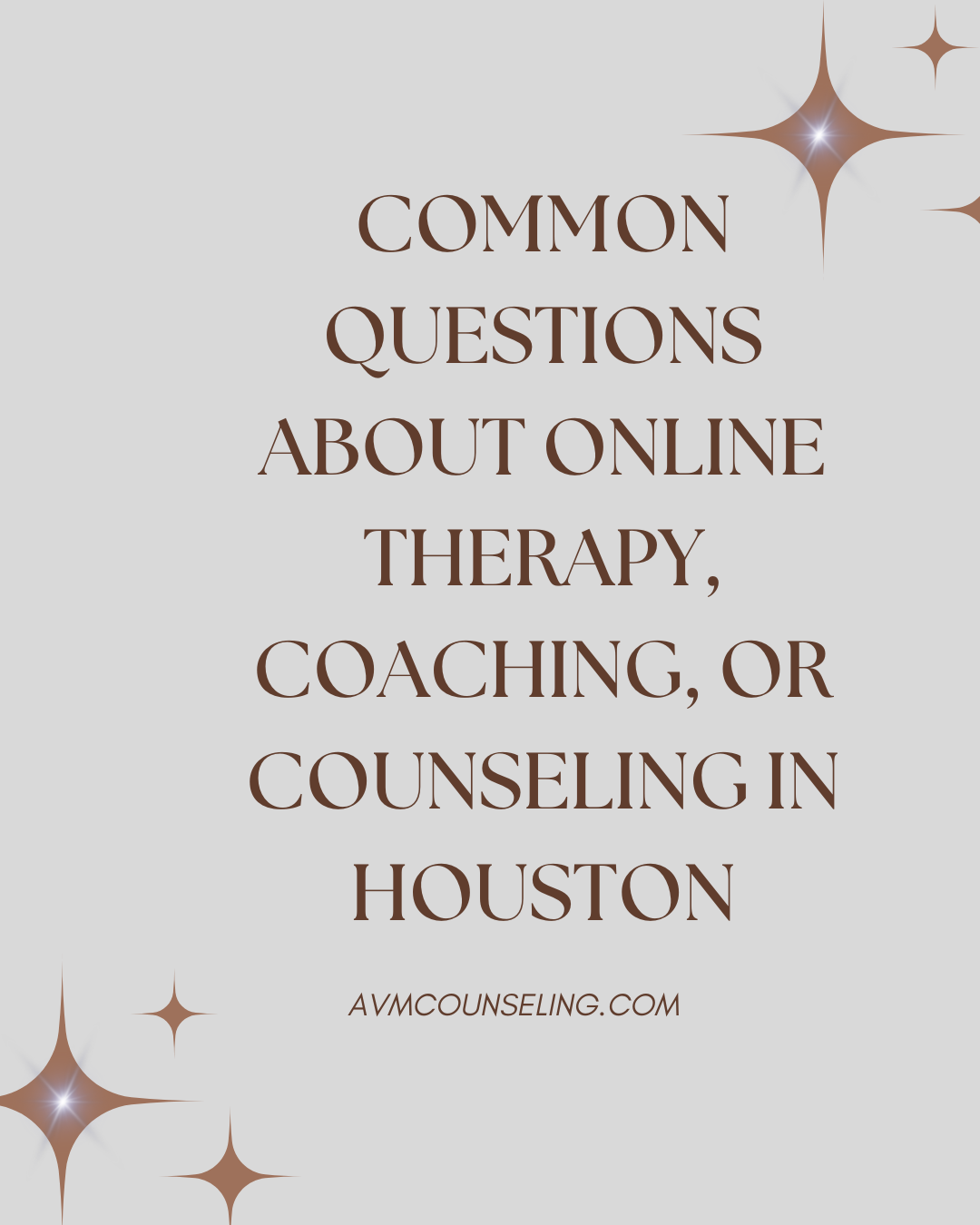Common Questions About Online Therapy, Coaching, or Counseling in Houston
It seems as though therapy is slowly becoming more widely discussed in the open (which is a good thing!), but there can still be questions that you may have about whether or not it can help you.
Below are some common questions that frequently come up in my conversations with clients. If you’ve been wondering the same things, you’re not alone.
Question #1: How is talking about what I am going through going to help me?
Not to get all scientific on you, but studies have demonstrated that self-disclosure, or talking about ourselves, actually feels good and has positive benefits to some regions of our brain. In addition to that, it can help reduce stress, develop connections with others, and perhaps gain a bit of a new perspective, or even find new ways to problem-solve.
In therapy, we don’t just focus on what’s going wrong, we also explore what life could look like when the problem is less present and what strengths you already have to help you get there.
Question #2: Is online therapy as effective as in-person therapy?
Yes, many studies show that online therapy can be just as effective as in-person therapy for a wide range of concerns. During the pandemic, more people discovered that virtual counseling was not only helpful but also convenient.
Logging into a session from home or your office means you don’t have to deal with traffic or take large chunks of time out of your workday. For some, online therapy even feels more approachable, especially if anxiety makes face-to-face meetings difficult.
That said, online counseling may not be the best fit for everyone, especially if someone struggles with technology or is dealing with more severe mental health concerns.
Question #3: What about medications? How do I know if I need them?
Only medical doctors (including psychiatrists) can prescribe medication. As a therapist, I don’t prescribe, but I do talk with clients about how symptoms are affecting their daily lives.
Sometimes, medication can be a helpful tool to manage depression, anxiety, or other concerns. If symptoms feel overwhelming or interfere with your ability to engage in therapy, I may recommend speaking with your doctor about whether medication could support your progress.
Question #4: What is the difference between a counselor, therapist, or life coach?
The terms can be confusing! Here’s a quick breakdown:
Therapists and counselors are licensed professionals trained to help you explore patterns, process emotions, and work toward healing and growth.
Life coaches are not licensed in the same way. Coaching often focuses more on setting and reaching specific goals, without exploring past history as deeply as psychotherapy does.
Both can be valuable, but therapy is often better suited if you’re struggling with anxiety, depression, or navigating major life transitions.
Question #5: How will I know when I no longer need therapy?
Therapy is not meant to last forever. Together, we’ll track your progress and check in on how you’re feeling compared to when you started. Signs you may be ready to graduate from therapy include:
Feeling more confident in managing stress or anxiety
Reaching personal goals you set at the beginning of therapy
Noticing that problems feel less overwhelming
When that time comes, we’ll talk through it and make a plan that feels right for you.
Taking the Next Step in Your Counseling Journey
If you’re considering online therapy in Houston or anywhere in Texas, you don’t have to figure it all out alone. A short conversation can help you feel more confident in your decision. Call me at 281-858-3325 for a free 15-minute phone consultation. I’d be happy to answer any questions you may have about online therapy.
